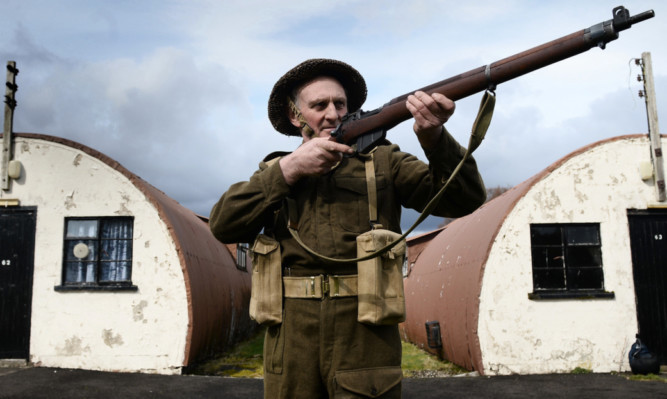Plans to convert a former Prisoner of War (PoW) camp in Perthshire into self-catering accommodation are taking shape.
The Cultybraggan site, near Comrie, is regarded as one of the three best preserved purpose-built Second World War PoW camps in the UK.
Plans to convert it into self-catering units were lodged this week with Perth and Kinross Council.
The historic significance of the site is shown in an extract from a Comrie Heritage Group publication, which states: “Built in 1941, the camp housed 4,000 German prisoners of war between 1944 and 1947. Known as the ‘Black Camp of the North,’ it had a notoriously hard reputation housing dozens of SS officers, members of the Wehrmacht, Luftwaffe and Marine Corps.”
In addition to grants worth more than £600,000, the organisers aim to raise at least £35,000 for the project via a community share scheme.
Comrie Development Trust (CDT) bought the camp for £350,000 in 2007 through a community right-to-buy share scheme after the Ministry of Defence put the site up for sale.
CDT appointed SKS Scotland in November last year to carry out market research regarding the demand for self-catering accommodation in the Comrie/Perthshire area and to develop a business plan for the project.
A report, included with plans lodged with the council, states the outcome of this research study is for two and four-bed units to a four-star VisitScotland standard, as opposed to the provision of bunkhouse type accommodation highlighted in an earlier feasibility report.
This report states that one of the former huts will have a lounge/kitchen complete with en-suite shower and be able to accommodate up to eight people.
Another hut should have an open plan living/mini-kitchen area, while one will have the option of a sofa-bed allowing a family or group of six people to stay there.
James F Stephen Architects have been appointed to develop conservation repair and adaptive reuse proposals for the self-catering accommodation project.
A design and access heritage statement states that parts of the camp have been sold or let out commercially to realise funds for other development projects, including the installation of a new biomass boiler for district heating, the change of use of the assault course into community allotments and various events held at the camp.
“The self-catering accommodation business will create a revenue stream for the camp to continue harmonious development within a unique tourism attraction with the opportunity to learn about Britain’s Second World War history,” the statement says.
